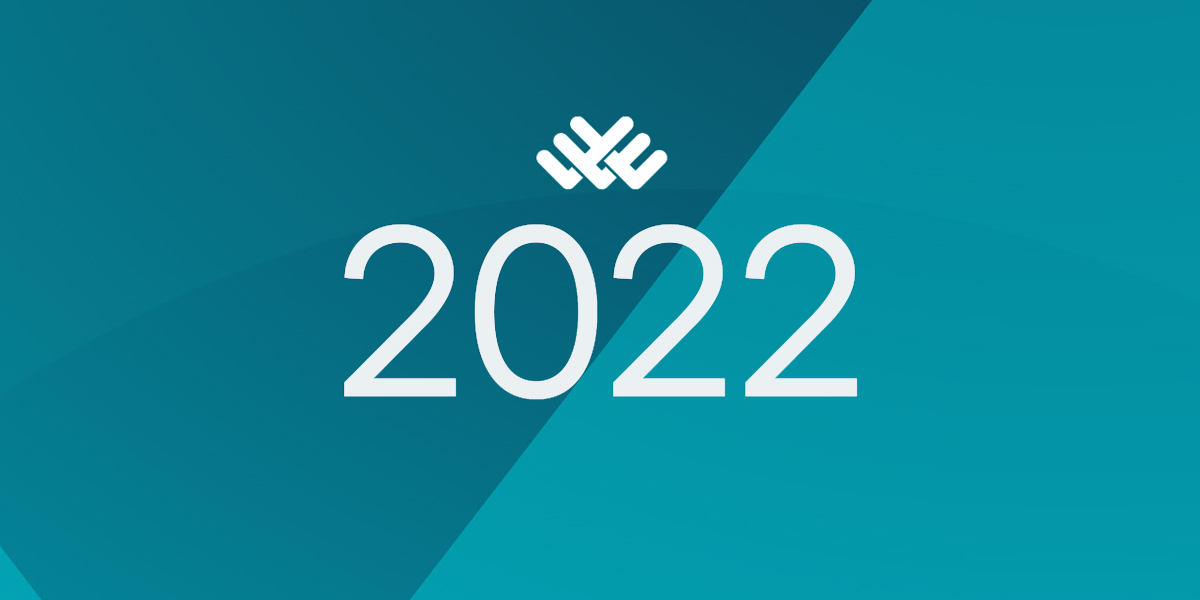Heading into the new year, HR teams are busy with yet another coronavirus variant, safety protocols, the transition to hybrid work, and a host of other (now familiar) challenges. Déjà vu, anyone?
As HR professionals, we’ve learned (and relearned) our share of lessons over the past two years, and it’s fair to suggest that 2021 was just a rehash of 2020. Though we’ll face many of the same challenges, there’s a sense among my peers and the broader HR community that 2022 can be different — less about feeling our way in the dark, more about implementing change. In other words, the cliched “new normal” will lose its novelty and just become how we do business.
Here are the HR trends that I believe will take center stage in 2022.
1. Hybrid work goes from concept to reality.
As HR leaders, we’ve had nearly two years to craft our strategy for hybrid work. Along the way, we’ve learned about our company cultures, employees, and our own personal adaptability. Many of us had to go back to the drawing board at least once. Coming up on COVID's third year, we need to break the illusion that a future date is when the future begins.
Organizations planning to go hybrid will need to actually make it work during 2022 — and it’s going to be uncomfortable. Hybrid teams that were all-remote yesterday will have to tinker with their meeting norms and culture to be more inclusive. Managers will need to remind themselves to be more cognizant of all their reports, not just the ones they’re suddenly face-to-face with again. Employees who opted to stay remote permanently will begin to grapple with workplace “FOMO,” as peers return to the office and in-person events with more regularity. And, yes, the pandemic will continue to bring unexpected developments that those hybrid models will need to navigate.
Next year is going to be an adjustment — an even harder one than what we faced in April 2020, when many organizations had to go fully remote overnight. HR professionals will have to shift from trying to define hybrid culture through policymaking to actually nurturing it and ensuring everyone is thriving in it.
2. HR will have its own Great Resignation.
Few departments shouldered the pandemic’s business impact like HR. From emergency protocols to hybrid strategy to company restructuring we’ve been in the middle of every new development. We’ve helped navigate our companies and people through uncharted waters and in doing so have raised the visibility, credibility and (most importantly) impact of the function. And that Great Resignation everyone’s talking about? Our organizations are looking to us for support and action.
Lattice’s State of People Strategy Report found that the hype around employee resignation is warranted, as over half of companies are reporting higher turnover than usual. But lost in the conversation is the risk of turnover specifically among HR professionals, just when companies need them most. In our report, HR teams ranked emotional exhaustion and being overwhelmed by projects and responsibilities as two of their top three challenges. It doesn’t hurt that HR job postings have increased by 87% since February.
Over the next 12 months, HR professionals will finally take stock of their mental health and consider whether they’re due for a change in scenery. Companies need to be willing to invest in HR ahead of the business needs and HR leaders need to help their teams put on their own “oxygen masks” first. Those that do can find themselves on the winning side of the coming HR reshuffle.
3. Total rewards will get an overdue overhaul.
With respect to People strategy, not much hasn’t changed over the last ten years. Companies transitioned away from relying on “one-and-done” annual engagement surveys to real-time pulse surveys. Stack ranking and traditional performance management gave way to growth-oriented approaches, with ongoing feedback and integrated development planning.
A convergence of factors — hybrid work, increased turnover, pay equity concerns and even inflation — will now be the impetus to rebuild rewards. 2022 compensation cycles will be particularly challenging as inflation outpaces merit budgets (a massive inversion of trends during the decade pre-COVID). Proactive organizations are working through levers from sign-ons to stock options while shaping the narrative around their holistic offering.
As cash-centric as the conversation can be sometimes, reshaping benefits needs to be part of that package. We talk about the importance of flexibility in a hybrid world, how employees are reconsidering their life priorities and the importance of supporting a diverse workforce. Our benefits should speak to those values.
4. Internal mobility will give companies a retention edge.
With employees weighing their options, engagement and retention will continue to be critical in the year ahead. According to our State of People Strategy survey, the second biggest driver for voluntary turnover was lack of career growth opportunities, ranking just behind higher pay.
Nearly a third of US workers are rethinking their careers entirely and the companies best positioned to hold onto talent will be the ones willing to develop it, even if that requires flexibility in how it’s developed. In practice, that means organizations will need to equip managers with the skills they need to coach and lead career conversations when there isn’t a checklist. It means rethinking the career ladder and providing employees with alternative pathways to succeed in the organization. It also means building more agile and resilient teams that can perform at a high level, even while they regularly gain and lose members to internal movement.
—
HR is deeply collaborative. Daunting as these trends (or tomorrow’s front page) may seem, none of us are going it alone. I’ve always leaned on peers, past and present, to navigate professional challenges like these.
Resources for Humans is Lattice’s Slack community of over 14,000 People leaders. The community is designed to help HR professionals connect, share advice, and ask questions — completely judgment-free. Together, we help each other navigate challenges by sharing resources and firsthand experiences. Click here to learn more about the free community.






